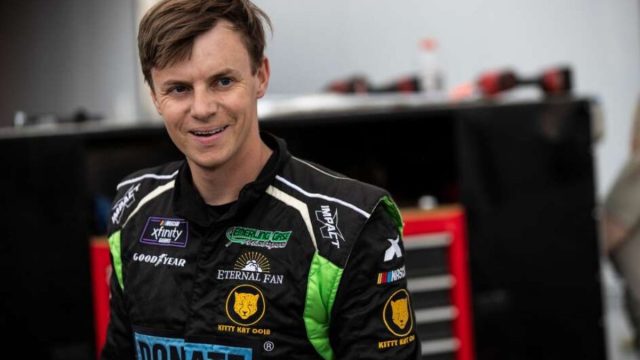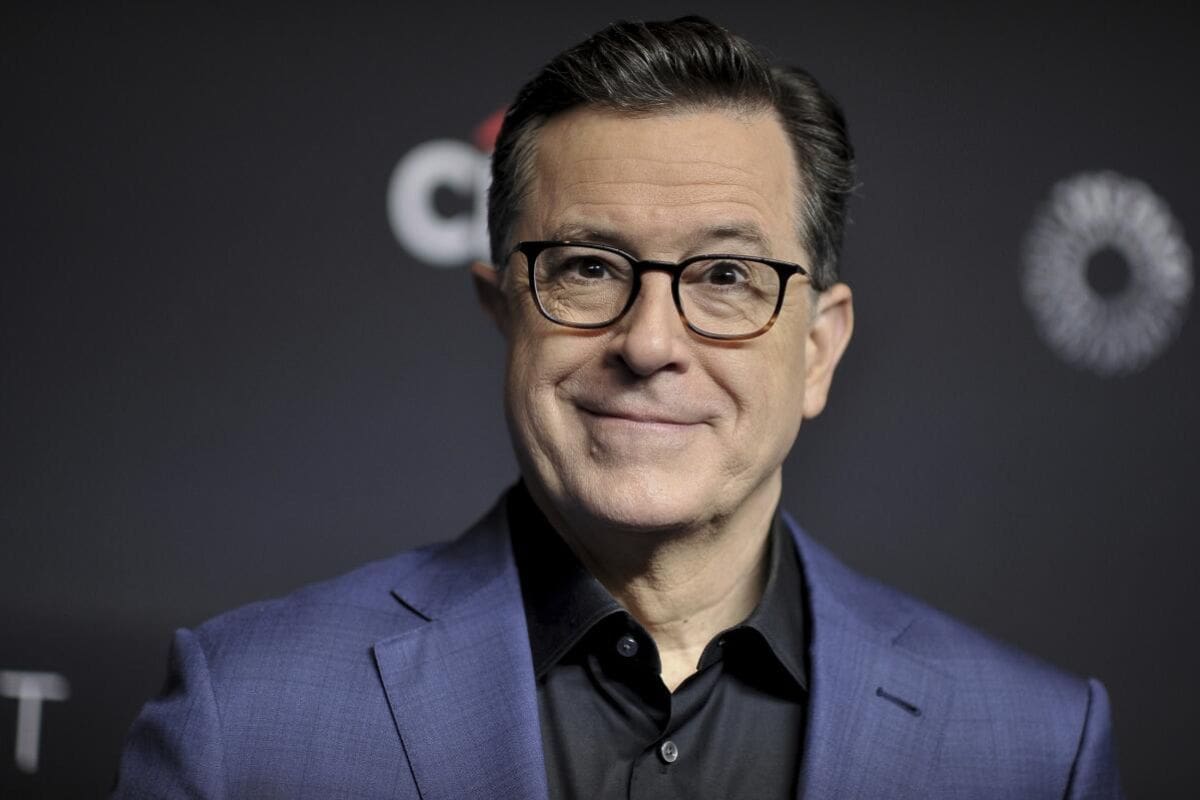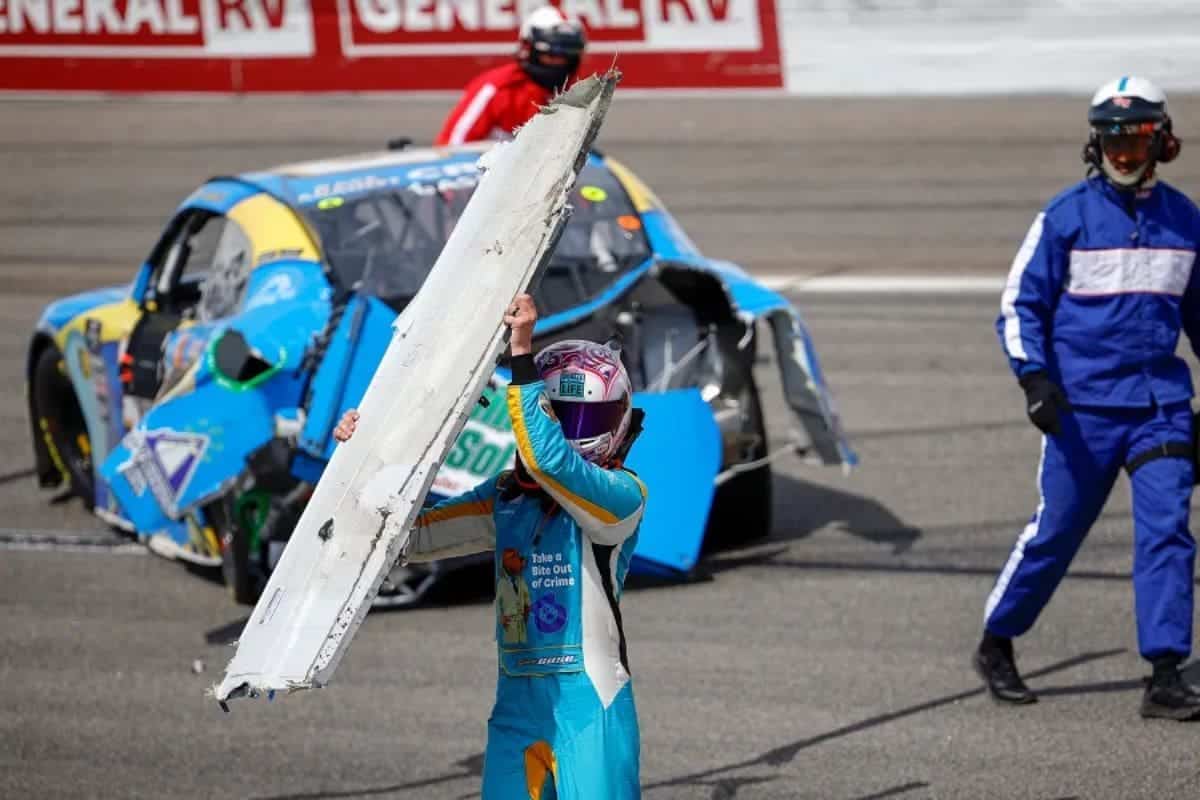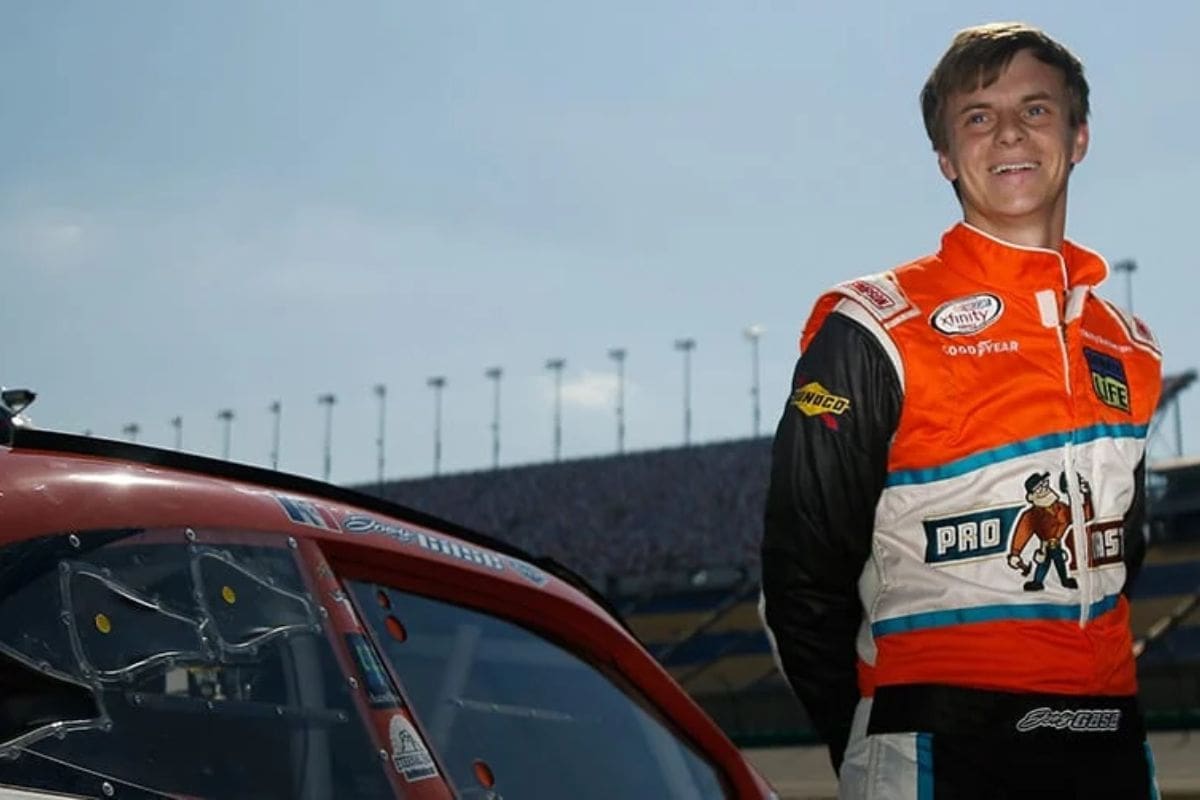Stephen Colbert’s NASCAR Roast: Stephen Colbert’s NASCAR roast, particularly targeting the road rage incidents, blends humor with a sharp critique of motorsport culture. Colbert cleverly uses comedy to highlight the human drama and competitive pressures at the heart of NASCAR, drawing attention to moments like Joey Gase’s controversial bumper throw. His segments not only entertain but also invite a broader audience to appreciate the complexities and the human elements within NASCAR. By threading humor with insightful commentary, Colbert manages to elevate the sport’s narrative, making it accessible and engaging for all. Exploring further might reveal how this comedic approach impacts NASCAR’s perception and popularity.
Key Takeaways
- Colbert’s NASCAR roast focuses on entertainment, using humor to highlight the sport’s intense moments and personalities.
- The segment blends comedy with motorsport insight, offering a lighthearted look at NASCAR’s dramatic events.
- By engaging racing icons in humorous conversations, Colbert brings NASCAR’s stories to a broader audience.
- The comedy segment underscores societal fascination with conflict and resolution, without promoting road rage.
- Colbert’s approach enriches NASCAR’s narrative, appealing to fans and non-fans alike by emphasizing the sport’s entertainment value.
Introduction to Drama in Xfinity Series
Amid the high-speed thrills and fierce competition of the Xfinity Series, a recent incident at Richmond Raceway has brought an unexpected spotlight to the drama that can unfold in NASCAR’s second tier. The spectacle saw Joey Gase, a driver known more for his perseverance than podium finishes, catapulted into the limelight for an act of raw, impassioned defiance rarely showcased so vividly on the track. In an extraordinary display of frustration, Gase hurled his detached bumper at a fellow competitor, an action that, while dangerous, highlighted the high stakes and intense pressure cooker environment these athletes operate within.
This episode did not merely ripple through the racing community; it surged into mainstream consciousness, propelled by the engine of social media, igniting debates and drawing attention from platforms far removed from the usual NASCAR discourse. The incident transcends the typical narratives of sportsmanship and rivalry, tapping into a visceral, almost archetypal storyline of human emotion and conflict. It’s a stark reminder that beneath the helmets and behind the horsepower, the Xfinity Series is a stage where human dramas play out at 200 miles per hour, where the line between control and chaos is as thin as the asphalt they race on.
For enthusiasts and professionals both, the incident is a study of the dynamics of competitive pressure, spotlighting not only the physical but also the psychological demands of motor racing. It serves as a compelling chapter in the ongoing narrative of the Xfinity Series, enriching our understanding of what it means to compete in NASCAR’s fiercely contested arena.
The Colbert Show’s Take on NASCAR
In a surprising pivot from his usual Hollywood critique, Stephen Colbert recently turned his comedic gaze towards NASCAR, specifically addressing the dramatic outburst of Joey Gase at Richmond Raceway. He descriped Joey Gase’s emotions as“He was so mad at Dawson Cram, the driver he felt was responsible, that he ripped off his own dangling bumper and hurled it at Cram as he drove past”. Colbert, with his characteristic wit, suggested that NASCAR could greatly enhance its popularity by integrating more road rage incidents into its events. His exact words were “NASCAR would be so much more interesting if you added road rage!” This proposition, while humorous, opens up a greater conversation about the spectacle of sports and what truly captivates audiences.
Through Colbert’s lens, we’re invited to ponder:
- The Role of Entertainment in Sports: Colbert’s jest points to an underlying truth about the modern sports industry—entertainment value is paramount. In a world where attention is the ultimate currency, the spectacle can sometimes overshadow the sport itself.
- The Power of Personality: By mimicking a hypothetical encounter between Joe Gibbs Racing drivers, Colbert emphasizes how individual personalities can enrich the narrative of a sport, making it more relatable and engaging for the audience.
- The Fine Line Between Drama and Sport: Colbert’s commentary blurs the lines between sport as a competitive endeavor and sport as a source of entertainment drama. This fusion can both attract a wider audience and challenge purists’ perceptions of the sport.
- The Audience’s Appetite for Conflict: Implicit in Colbert’s satire is the recognition that conflict, whether on the racetrack or between personalities, is a potent draw for viewers. It speaks to a broader societal fascination with confrontation and resolution.
In dissecting NASCAR’s dramatic elements with humor, Colbert not only entertains but also invites us to reflect on the complexities of sports entertainment. His unique take on NASCAR offers an insightful, engaging, and authentic exploration of how drama and competition intermingle on the grand stage of professional racing.
Previous NASCAR References on The Late Show
Stephen Colbert’s engagement with NASCAR on The Late Show spans humorous segments that include memorable interviews with racing icons such as Jimmie Johnson and Kyle Busch. These appearances provide a unique blend of comedy and motorsport insight, showcasing Colbert’s ability to navigate diverse topics with ease. His playful banter with guests like Kyle Busch not only entertains but also brings a different perspective to the racing world, one that’s accessible to both hardcore NASCAR fans and casual viewers similarly.
In one notable segment from 2015, Colbert humorously roasted Kyle Busch about his Championship trophy, questioning its practicality with his trademark wit. He said, “looks like it would be terrible to drink out of”. Despite the jest, the episode highlighted Busch’s good sportsmanship and his willingness to engage in Colbert’s comedic antics, such as racing on a Pinewood Derby track. Colbert went on to comment “As the Sprint Cup champion and the winner, not only do you get this wonderful trophy, but more importantly, Kyle, you have qualified for the Late Show with Stephen Colbert Cinnamon Toast Crunch 400.” This is not only added a layer of entertainment but also showcased Busch’s racing skills in a lighthearted context.
To capture the essence of Colbert’s NASCAR engagement, consider this overview:
| Guest | Highlight |
|---|---|
| Kyle Busch | Roasted about his Championship trophy’s practicality; showcased racing skills on a Pinewood Derby track. |
| Jimmie Johnson | Engaged in memorable interviews, further bridging the gap between NASCAR enthusiasts and the general public. |
This table succinctly encapsulates the unique intersection of comedy and sportsmanship on The Late Show. Colbert’s approach to NASCAR references goes beyond mere jokes, offering an insightful and engaging exploration of the sport’s culture and its stars. Through his platform, Colbert has managed to elevate the conversation around NASCAR, making it accessible and entertaining for a broader audience.
Kyle Busch’s Great Triumph
Kyle Busch’s 2015 Sprint Cup Series Championship victory stands as proof of his resilience, overcoming significant injuries to clinch the title in a remarkable display of determination and skill. The journey to his triumph wasn’t just a validation of his driving prowess but also highlighted his capacity to confront and surmount adversity. Busch’s recovery and subsequent victory resonate deeply with fans and fellow racers equally, illustrating the sheer tenacity required to succeed in the high-octane world of NASCAR racing.
To fully appreciate the depth of Kyle Busch’s achievement and its significance, consider the following points:
- Overcoming Physical Setbacks: Busch’s return to racing, after sustaining serious injuries, emphasizes the physical and mental fortitude necessary to compete at the highest level of motorsports.
- Dedication to Craft: His commitment to rehabilitation and training showcased an unwavering dedication to his craft, setting an inspiring example for aspiring racers.
- Strategic Acumen: Beyond physical recovery, Busch’s championship victory required strategic thinking and adaptability, showcasing his ability to navigate the complexities of racing dynamics and competition.
- Resilience in the Face of Adversity: His triumph serves as a powerful example of resilience, encouraging individuals from all walks of life to persevere through challenges.
Busch’s story transcends the world of sports, offering valuable lessons on the importance of resilience, dedication, and strategic planning. It’s a compelling narrative that reinforces the idea that triumph over adversity is possible with determination and hard work.
Implications for NASCAR’s Presence in Popular Media
Reflecting on Kyle Busch’s remarkable journey to victory highlights the broader narrative of NASCAR’s growing visibility and intrigue within popular media landscapes. The incident involving Joey Gase, as reported, not only sparked discussions but also emphasized NASCAR’s potential to attract audiences beyond the racetrack and into mainstream American shows. The reception of these events on platforms like The Late Show suggests that the drama unfolding on the track could serve as a magnet, drawing more attention and interest toward NASCAR.
This intersection of NASCAR with mainstream media platforms is not merely coincidental; it indicates the sport’s evolving relevance and increasing appeal in a crowded entertainment landscape. As the narratives around races and drivers become material for late-night comedy and social media discussions, NASCAR finds itself at a critical juncture. The question is no longer about its presence in popular media but about how it utilizes this visibility to promote a deeper, more nuanced understanding and appreciation of the sport.
The implications are manifold. For NASCAR, this represents an opportunity to expand its fan base, tapping into demographics that might not have previously engaged with auto racing. For popular media, NASCAR’s rich stories of triumph, adversity, and, yes, road rage, offer engaging content that resonates with viewers seeking authenticity and raw emotion. In this interplay of sports and entertainment, both NASCAR and popular media stand to benefit, enriching their offerings and engaging audiences in new and unexpected ways.
News in Brief
Stephen Colbert’s comedic venture into the world of NASCAR not only highlights the sport’s dramatic flair but also emphasizes its growing influence within popular media. By blending humor with the high-octane drama of the Xfinity Series, Colbert’s critique serves as a bridge, connecting NASCAR’s passionate fan base with a wider audience.
This intersection of sports entertainment and mainstream comedy highlights the evolving perception of NASCAR, positioning it as a compelling narrative in the broader cultural dialogue.
ALSO READ: Joey Gase Faces Backlash Over Bumper Throw: Inside NASCAR’s Verdict



